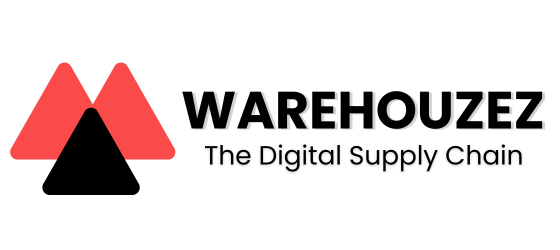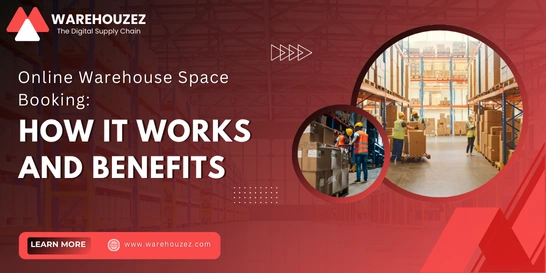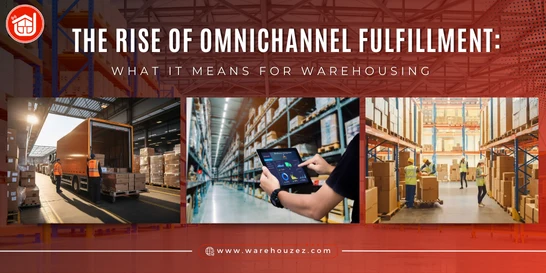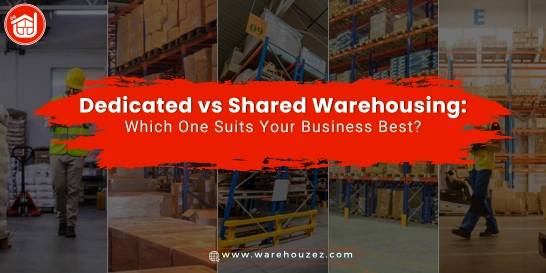E-commerce Fulfillment and Its Scope in 2023: A Comprehensive Overview
E-commerce Fulfillment and Its Scope in 2023: A Comprehensive Overview
It's no secret that e-commerce fulfillment has become an integral part of the modern retail industry, allowing businesses to deliver products to customers worldwide. With more and more consumers shifting to online shopping, the demand for efficient and effective e-commerce warehouse fulfillment services has increased. From warehousing and inventory management to order processing and shipping, e-commerce fulfillment encompasses a wide range of operations that ensure a seamless and satisfying customer experience.
In this particular blog post, we will dive into the world of e-commerce fulfillment, exploring its various aspects and discussing the scope it holds for the future. With that, let’s jump right in!
Introduction to E-commerce Fulfillment
In the most inclusive sense, e-commerce fulfillment refers to the process of completing and delivering online orders to customers. It involves numerous tasks, including receiving inventory, organizing storage, packaging orders, shipping, and handling returns or exchanges. In today's times, online businesses rely heavily on efficient and reliable order fulfillment operations to ensure customer satisfaction.
This can involve managing fulfillment-related operations in-house or partnering with a third-party logistics (3PL) service provider who has access to specialized resources and technologies.
With the increasing popularity of online shopping, e-commerce fulfillment has become a crucial component of a successful online business, as it directly impacts the customer experience and brand reputation.
Overview of the Operations Included in E-commerce Fulfillment
Let's take a quick look at the operations and processes involved in e-commerce fulfillment:
1. Storage and Warehousing
Storage is a significant step in e-commerce fulfillment. Storage or warehousing is all about having a well-organized e-commerce warehouse where products can be stored safely and securely until they are ready for shipping. These warehouses have specialized spaces to store a variety of products. This ensures easy accessibility and retrieval of products when new orders are received.
2. Inventory Management
Effective inventory management is certainly crucial in order fulfillment operations. It includes keeping track of the available stock of products, monitoring their movement, and replenishing inventory when necessary. This ensures that enough stock is on hand to fulfill customer orders promptly without overstocking.
3. Order Management
Order management covers everything from receiving and processing customer orders to tracking their status and ensuring accurate and timely deliveries. It includes tasks like verifying the order details, preparing invoices, generating shipping labels, and updating the customer about the order progress.
4. Order Picking and Packaging
Order picking refers to the process of selecting and gathering the required items from the 3PL e-commerce warehouse shelves or inventory storage to fulfill a specific order. This step often involves using technology, such as automated systems or barcode scanners, to ensure accurate and efficient picking. Once the products are picked, they need to be appropriately packaged for safe transportation to the customer.
5. Logistics and Shipping
In its most inclusive sense, logistics refers to the process of coordinating the movement of products from the manufacturers or suppliers to the warehouses and eventually to the end customers. It includes a number of tasks, such as receiving and inventorying goods, managing and optimizing warehouse storage, and selecting appropriate shipping methods and carriers.
6. Reverse Logistics/ Returns Management
Dealing with product returns and managing reverse logistics is an inevitable part of an online business. It basically includes processes such as handling customer returns, inspecting returned products for damages or quality issues, and managing exchanges, refurbishments, or refunds.
Types of E-commerce Fulfillment Models
There are multiple ways to carry out fulfillment-related operations, depending on your business requirements and the number of orders. Primarily, there are three popular fulfillment models, each with its own set of pros and cons.
Let's learn more about these models:
1. Self Fulfillment
In this model, the online business manages the entire order fulfillment process by itself. The business owns storage facilities, manages inventory, and handles order processing, packaging, and shipping. Self-fulfillment gives businesses control over the entire customer experience and allows for customization and branding. However, it requires significant investments in infrastructure, labor, and technology, making it suitable for larger businesses.
2. 3PL Fulfillment
The 3PL (Third-Party Logistics) fulfillment model involves outsourcing the entire fulfillment process to a third-party logistics provider. These providers specialize in managing all aspects of fulfillment, including warehousing, inventory management, order processing, packaging, shipping, and returns. Retailers using the 3PL model benefit from the expertise and infrastructure of the provider, reducing their own operational costs and saving time. This model is particularly useful for retailers with limited resources or those experiencing high growth.
3. Dropshipping
Dropshipping is a fulfillment model where the retailer does not stock the products it sells. Instead, the retailer takes customer orders and transfers them to the supplier or manufacturer, who directly ships the products to the customer. The retailer acts as an intermediary and earns a profit from the price difference between wholesale and retail prices.
Benefits of E-commerce Fulfillment
There's no denying the fact that e-commerce warehouse fulfillment companies specialize in providing cost-effective and specialized solutions to meet the needs of both buyers and sellers. From storage and inventory management to order processing and shipping, they handle it all with precision and perfection. They help online businesses fulfill orders quickly, increase customer satisfaction, and improve profitability.
Let's take a look at the benefits of outsourcing e-commerce fulfillment-related operations to expert service providers:
1. Enhanced Customer Satisfaction
Without a doubt, outsourcing order fulfillment operations allows businesses to provide a better customer experience by offering faster shipping, accurate order processing, and transparent tracking systems. This improves customer satisfaction as they receive their orders quickly and in good condition, leading to a positive impression of the brand.
2. Faster Order Fulfillment
Outsourcing order management to 3PL service providers reduces the time it takes to fulfill and ship orders. With automation and streamlined processes, they can efficiently pick, pack, and ship products, resulting in faster delivery to customers. This not only improves customer satisfaction but also helps in increasing repeat purchases and gaining a competitive edge.
3. Improved Branding and Profitability
Accurate order management can positively impact a brand's reputation. By consistently delivering orders on time and in good condition, businesses can establish themselves as reliable and trustworthy. This can lead to positive word-of-mouth marketing, increased customer loyalty, and ultimately, improved profitability.
4. Access to Specialized Resources and Technologies
3PL service providers often have access to specialized resources and technologies that can help businesses optimize their operations. These resources may include large warehouses, advanced warehouse management systems, automated picking and packing technologies, and efficient shipping networks. By partnering with a 3PL provider, businesses can leverage these resources to streamline their fulfillment processes and reduce costs.
Scope of E-commerce Fulfillment in 2023 and Beyond
The scope of e-commerce fulfillment continues to expand, driven by advancements in technology and ever-changing consumer demands. With the continuous growth of online shopping, more and more businesses are realizing the importance of efficient and timely order fulfillment. This has certainly given rise to advancements in technology, such as the automation of warehouses and the use of robotics in order picking and packaging. Additionally, same-day and next-day delivery services are becoming increasingly popular, creating new opportunities for e-commerce fulfillment providers. This industry is expected to experience phenomenal growth opportunities in 2023 and for years to come.
Final Thoughts
In 2023 and the upcoming years, it is evident that e-commerce fulfillment will continue to play a crucial role in the success of online businesses. With the rapid growth of online shopping and the increasing demands of customers for fast and reliable deliveries, businesses need to prioritize their fulfillment-related operations. From warehousing and inventory management to order processing and shipping, the scope of e-commerce fulfillment is vast and dynamic. Embracing advanced technologies, such as automation, robotics, and artificial intelligence, will be essential for businesses to optimize their order management processes and meet the evolving needs of customers. In 2023 and beyond, businesses that invest in order fulfillment will be well positioned to thrive in the competitive online marketplace.



